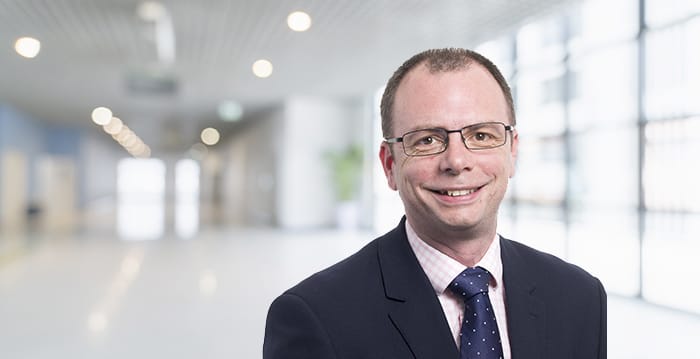Jonathan Bower, partner, planning and infrastructure team leader and head of responsible business at Womble Bond Dickinson in Bristol, explains how the rebuild after the pandemic involves businesses giving back to their communities

Having joined Womble Bond Dickinson as a trainee, Jonathan Bower now sits as the head of the planning team across the UK, and head of responsible business in the firm’s Bristol office.
On average, around 60-70% of Jonathan’s day involves regeneration work in both the public and private sectors, as well as working on large infrastructure projects, including offshore wind farms, power stations, and major transport projects, such as HS2. The rest of his time is filled with team and client management as well as investing in the firm’s corporate social responsibility (CSR) commitments, in his role as head of responsible business in Bristol.
This role sees Jonathan managing and coordinating the office’s work in the community, which includes fundraising and volunteering with various organisations, mentoring in local schools, and helping to increase employment opportunities for those struggling to find work, through initiatives such as career coaching. Linked to this role is also work around social inclusion, with Jonathan supporting Womble Bond Dickinson’s apprenticeship networks, as well as working on its wider diversity and inclusion initiatives.
A business’s response to its community is not only important from a CSR perspective, notes Jonathan, but forms a fundamental part of economic recovery from the COVID-19 pandemic. If we wish to ‘build back better’ after the pandemic, we cannot rely on financial initiatives alone. We must also place emphasis on social value, explains Jonathan. This means giving back to society in order to make up for the “missed opportunities” experienced by many as a direct consequence of the pandemic. For example, to address the potential missed opportunity of mentoring for school pupils as a result of the national lockdown, the firm has moved its school mentoring programme online. This has been met hand-in-hand with the donation of IT equipment to students without access to computers, as well as an increase in funding to local schools.
The Bristol-based lawyer says “the [economic] COVID response will form just one part of ‘the build back’ pledge. There is still a pressing need for businesses to work with communities because of the lost opportunities that have been arising, particularly with regards to the increase in unemployment that we have seen.”
Being a ‘responsible business’ goes beyond external CSR commitments and COVID recovery initiatives, says Jonathan. It also refers to a business’s internal operations. In light of the recent shift towards remote working, the lawyer reflects that where safety policies once revolved around avoiding physical injury in the workplace, the focus upon protecting the wellbeing of staff and addressing the new challenges brought with working from home has greater emphasis. Where possible, Jonathan encourages colleagues to go for a walk whilst having internal team meetings.
Looking to the firm’s wider sustainability commitments, Jonathan notes that Womble Bond Dickinson has always been active in the “clean energy” space, having helped to orchestrate the country’s first onshore energy windfarm back in 1989. Jonathan highlights that the increased emphasis we have seen on sustainability in recent years, augmented by the government’s target of net-zero by 2050, has encouraged many of the firm’s energy clients to diversify their practices to include cleaner forms of energy. In other sectors, the firm’s clients have also been having to adapt to meet these targets. For example, Jonathan notes that there is now a greater use of technology in real estate development projects, known as ‘Proptech’. Much of the work the firm does in these sectors involves helping their clients to integrate and implement these changes as smoothly as possible.
In true Bristolian fashion, Jonathan graduated from the University of Bristol with a law degree and “for [his] sins never left”. With the government’s Planning Inspectorate just across the road, the Bristol office has a strong planning and infrastructure practice, as well as being a generally nice city to work in with a cooperative legal scene.
Jonathan’s parting advice for those currently looking to enter the legal profession is to “always be yourself rather than something that you think the firm wants you to be.” Jonathan remarks that recruiting a diverse group encompasses “diversity of thought” which is highly important. It provides a genuine impression of yourself and will enable you to find a firm that suits you well, and vice versa.
Jonathan Bower will be speaking alongside other Womble Bond Dickinson lawyers at ‘Sustainable business and the law’, a virtual student event taking place on Thursday 4 February, from 4pm to 6pm. You can apply to attend the event, which is free, now.
About Legal Cheek Careers posts.


